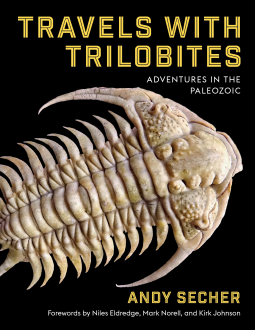Book Review: Travels with Trilobites: Adventures in the Paleozoic by Andy Secher
Early Book Review: The Library: A Fragile History by Andrew Pettegree; Arthur der Weduwen
The Library: A Fragile History by Andrew Pettegree; Arthur der Weduwen is currently scheduled for release on November 7 2021. Famed across the known world, jealously guarded by private collectors, built up over centuries, destroyed in a single day, ornamented with gold leaf and frescoes, or filled with bean bags and children’s drawings—the history of the library is rich, varied, and stuffed full of incident. Historians Andrew Pettegree and Arthur der Weduwen introduce readers to the antiquarians and philanthropists who shaped the world’s great collections, trace the rise and fall of literary tastes, and reveal the high crimes and misdemeanors committed in pursuit of rare manuscripts. In doing so, they reveal that while collections themselves are fragile, often falling into ruin within a few decades, the idea of the library has been remarkably resilient as each generation makes—and remakes—the institution anew.
The Library: A Fragile History is a well written and thoroughly researched book. It gives an overview of the history of libraries, highlighting some notable libraries and collectors along the way. I think the information is very well organized, and I appreciated the inclusion of some women that have had an impact, which is often left out or written about in a condescending way. I appreciate the amount of research and work that went into the book, and found the subject matter fascinating. However, I think those most interested would do better to tackle this book one section at a time rather than trying to read it straight through. The information is great, it is meticulously researched and cited, but the text reads a bot dry and dense. The passion the authors, and most readers that pick up this book, feel is not conveyed through the text making it a less engaging read. I am still very glad I read it and learned so much, and I think those interested in the title and subject matter will be as well. It is just a slightly more dense non fiction read than I normally enjoy. As one would hope, and expect, from a book about libraries the lists of citations and the bibliography was complete and though. This made me happier as a reader because I could further explore the sources used in researching this book.
The Library: A Fragile History is a book that will appeal to anyone that has ever fallen in love with reading, books, libraries, or the trappings of any related topics.


